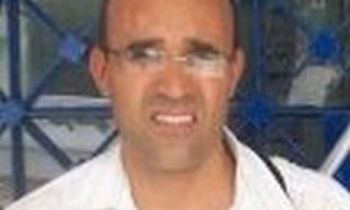The mass media in Israel have recently faced an unprecedented attack from readers, listeners and viewers who are unwilling to accept the media's conduct during the Second Lebanon War. This may be partially due to the conduct of the war and its outcome. The official communications authorities are trying, albeit somewhat hesitantly, to take a stand, but do not conceal their dissatisfaction.
The Israel Media Watch and the Ometz nonprofit organization have requested the establishment of an independent external committee to examine the plethora of claims made against private and public media organizations. The Second Television and Radio Broadcasting Authority Council and the minister who oversees the Israel Broadcasting Authority have already discussed the issue. The managing director of the Reshet television franchise has decided to investigate this important issue within his own domain, and most private media organizations have already done the same in special editorial meetings. The Israel Democracy Institute and the Jerusalem Center for Ethics in Mishkenot Sha'ananim hosted a comprehensive conference attended by many Israeli journalists.
The attacks pose a grave risk to freedom of the press. In practice, they represent an absolute expression of lack of faith in the role of an independent press in a democratic society, and a clear attempt to restrict the media's actions in the future.
It is proper to leave clarification of these issues to editorial boards, ministerial bodies and unbiased public organizations, such as the Council for Democratic Press and academic institutions. It is certainly important to publicize the conclusions of such inquiries, but they must not be transformed into a double-edged sword raised against journalists and media organizations, which take great pains to provide the public with knowledge of the course of events in every arena.
The media today are essentially different from their predecessors of only one or two generations ago. Technology has changed: There are live, continuous broadcasts, the Internet and competition with media sources around the world, and cellular phones and digital cameras are available everywhere, including on the battlefield. All of these simplify communication but complicate the work of writers and editors: They transform us into communications consumers with "access privileges" to a variety of events, to an extent never experienced in the past.
Three examples illustrate the character of the media and the importance of their independence - even during wartime:
1. Thanks to modern technology, the most powerful man in the world - the president of the United States - and the ordinary citizen know at precisely the same moment when an American astronaut lands on the moon.
2. Former U.S. president John F. Kennedy blasted The New York Times for self-censorship when it failed to publish a leak regarding his government's plan to invade the Bay of Pigs in Cuba. His justification: "Sacred cows" have no place in journalism. If they had published this information, the invasion would not have been implemented and the U.S. would have been spared an enormous disgrace.
3. In the week before the Yom Kippur War, Israel's three major newspapers presented planned reports about the buildup of Syrian and Egyptian troops along Israel's border to the military censor, but the censor prevented publication. The press might have saved the lives of some of our 2,650 slain soldiers by publishing this information. We might have called up the reserves in time, and perhaps even been spared the entire, ghastly war.
The role of responsible journalism in a democratic state is to expose and publicize everything that is fit to print - even during wartime. The public has a right to know, because only the public is forced to pay the price.
The writer is the founder of the Telad Communications company.









